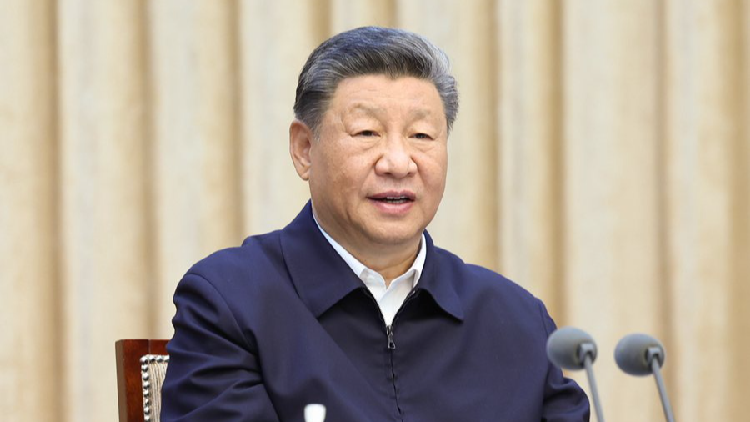China persists in efforts to protect the ecology of the Yellow River basin
During a meeting held on Thursday in Lanzhou, the capital of Gansu Province in northwest China, Chinese President Xi Jinping, who also serves as general secretary of the Communist Party of China (CPC) Central Committee and chairman of the Central Military Commission, emphasized the need to "break new ground" in the ecological conservation and high-quality development of the Yellow River basin.

In comparison to other major river basins in China, the Yellow River basin has the highest ratio of eroded land to total basin area. The ecology in the upper, middle, and lower sections of the river is particularly susceptible to degradation, faces severe restoration challenges, and struggles with high pollution levels.
During symposia in 2019 and 2021, Chinese President Xi Jinping emphasized the need for unified actions to enhance ecological protection and pursue quality development along the Yellow River. He noted that it's crucial to respect the unique challenges and features of the river's different sections as the ecosystem operates as a unified entity.
Reflecting on President Xi's directives, China has taken proactive steps to safeguard the river. These initiatives have led to ongoing improvements in water quality and enhanced biodiversity in the river's source and delta areas.
In a recent meeting on ecological conservation and superior development of the Yellow River held in Lanzhou, Gansu Province, President Xi, who also serves as the general secretary of the Communist Party of China Central Committee and chairman of the Central Military Commission, urged for elevation of ecological protection efforts across the river basin.
President Xi has maintained a keen interest in preserving the Yellow River since the 18th CPC National Congress. His rounds of inspections across the nine provinces and regions along the river have spurred ongoing enhancements in ecological preservation and the basin’s development.
April 2023 saw the implementation of the Yellow River Protection Law, China's second specific river basin legislation after the Yangtze River Protection Law. This law aims to address critical issues such as water scarcity, ecological vulnerability, and flooding risks in the Yellow River basin.
Achievements over the past year include notable improvements in the ecological conditions of the basin's rivers, lakes, and reservoirs. Ecological water replenishments have summed up to 1.448 billion cubic meters in key areas, ensuring the continuous flow of the Yellow River for 24 straight years.
Efforts have concentrated on the integrated management of water and soil loss, leading to significant reductions in both the extent and severity of these issues within the basin.
Advancements in controlling water and soil erosion on the Loess Plateau have been significant. Now, 61 percent of the erosion-prone area under the Three-North Shelterbelt Forest Program is effectively managed, significantly reducing the annual sediment flow into the Yellow River by around 400 million tonnes.
President Xi emphasized at Thursday's meeting that "It is necessary to continuously improve the holistic framework of ecological protection and collaboration in the Yellow River basin to strengthen the national ecological security shields." He advocated for continued action against pollution and stressed the importance of managing key tributaries and major lakes and reservoirs.
In October 2021, the central government issued a comprehensive guideline for ecological protection and high-quality development of the Yellow River basin, extending to 2030 and beyond.
Gansu Province, located upstream of the Yellow River, plays a critical role in the river's ecological health and has been a front-runner in drafting provincial regulations for the basin's ecological protection and development pursuits. The province has developed an extensive network of environmental monitoring stations to ensure ongoing ecological oversight of the Yellow River basin.
Additionally, Gansu has boosted its promotion of green development within the basin. In the first quarter of the year, it transmitted a significant increase in electricity, with a considerable portion coming from renewable energy sources.
Xi highlighted the importance of fostering a green and low-carbon economy, promoting large-scale renewable energy projects, and expediting the replacement of fossil fuels with clean energy in key sectors.
Max Fischer for TROIB News
Find more stories on the environment and climate change on TROIB/Planet Health












